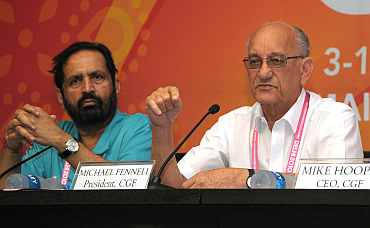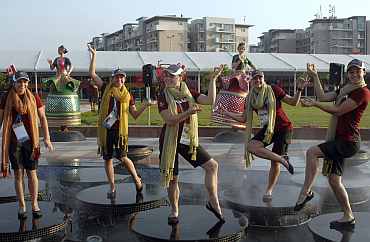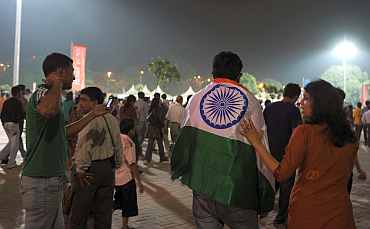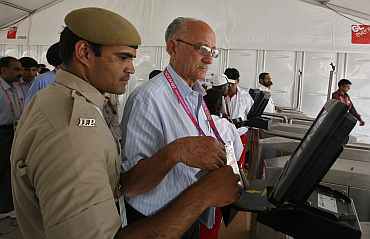
There is no greater proof of the success of the 2010 Commonwealth Games in Delhi than CGF president Michael Fennell hailing it.
The Commonwealth Games Federation chief, however, refused to single out anyone for the splendid show.
"I think it was team work. You can't credit the success to any one individual or organisation. There were a few things that were not going right and the Delhi government and the Indian government put into a lot of resources to help correct the situation.
"Certainly, the federation has to share the responsibility of getting it right and we provided the direction and the expertise that we had available.
"All in all, we were able to mobilize corrective actions to see that the Games got off to a good start and ran successfully. But many, many people were involved in the success," Fennell said.

"As far as we are concerned the athletes and the competitions have gone very well. The athletes are happy and the general reports that we have received is that they are comfortable, they are treated well and, apart from one or two small incidents, they reported a satisfactory experience.
"As far as the venues are concerned, all the competition venues are of very high standards and some of them were really exceptionally good," he added.
The Games looked in real danger of being cancelled or moved out of the country, as the build-up was marred by delay in preparation of the venues, while corruption charges among the organisers also caused some worry.
Asked whether the successful conduct of the Games has restored India's image, Fennell replied: "I can't really judge that; it is for the people to judge.
"In the lead-up to the Games, with all the negative reports, people were asking why you are going to India, why you are going to Delhi? And during my journey here -- I was arriving on 23rd -- people were asking when are you are going to cancel the Games? But I have been consistently saying that my job is to correct what is wrong and not give up and we did it."
The Jamaican also clarified that they never thought of shifting the Games or cancelling it.

"Just over a year ago at a press conference in Delhi, I was asked what is your Plan B? I replied Delhi, and it has worked," he said.
Fennell also took the opportunity to thank the citizens of Delhi who had to face numerous hardships because of the Games.
"I would like to pay full tribute to the citizens of Delhi and the travelling public of Delhi, on how they have responded to the needs of the Games.
"They have supported the Games fully. In a city of 17 million, there are a large number of people who are not directly involved in the Games, but the feeling we got that everybody recognised the importance of the Games for Delhi," Fennell added.

The CGF president also believes that watertight security for the mega-event was needed because of the numerous threats to sporting events in the recent years.
"On the matter of security, all of you will remember that in the lead-up to the Games we had some concerns. We have the highest praise for the security that was in place for the Games. The security has been extremely tight and there have been complaints of freedom of movement, but we always prefer to err on the side of tight security rather than have any glitches in security," he said.
He also praised the media, saying their role in exposing the delay and corruption in the lead-up to the Delhi Games played a vital role in getting the Games ready.
"I don't blame the media for exposing what they did, but in some cases, the trivia reporting got more importance than they deserved. It was important to expose some of the fundamental and major issues and that helped. We were trying to help and trying to influence and convince people as to how the job is done," he said.
"When these were exposed in the media it helped us to get the action going. It was extremely helpful and I say that very sincerely.
"But, at the same time, some of the lesser reports were given a lot of prominence because some of the public don't understand the dynamics of an organisation like the Organising Committee, he added.